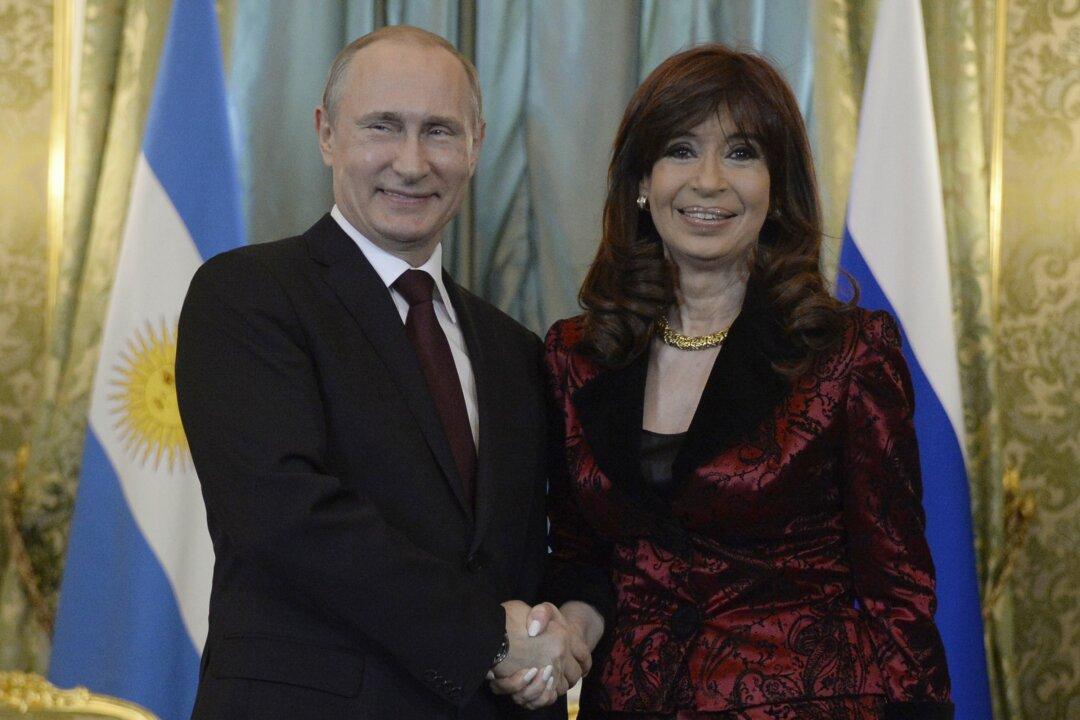Representatives of the Argentine government—Defense Minister Agustín Rossi and Security Secretary Sergio Berni—signed a wide range of Russian-Argentine cooperation agreements this year in Moscow.
Not even during the Falklands War, when Russia supported Argentina against the United Kingdom in a territorial dispute in the South Atlantic, was such intense cooperation seen.
One of the agreements signed this year aims to, for the first time in history, bring together the Russian and Argentine armies for joint military exercises and maneuvers. Another agreement stipulates that the police of both countries will join forces to combat drug trafficking.
Argentina’s Kirchner government, in power since 2003, had been shying away from any strong cooperation with the United States in these areas. Now the Bolivarian President Cristina Fernández de Kirchner reveals the ultimate aim of this policy: to ally with the Kremlin (Bolivarianism is a movement characterized by a mix of populism, nationalism, and socialism).
Rossi signed an agreement with his Russian counterpart Sergei Shoigu for “mutual protection of secret information generated by the military-technical cooperation,” reported the newspaper Clarín from Buenos Aires.
The stated objective of this agreement is to facilitate “the joint production of military-grade equipment and the training of specialists in technology, and the development of scientific research and experimental design,” in which Russia will play the leading role.
Russia and Argentina will also considerably increase their military cooperation. The Argentine air force purchased two Russian Mi17E helicopters, and wants to buy three more. The navy acquired four patrol ships to be deployed in the south Atlantic and for logistical support of the bases in Antarctica. One hundred six Argentine sailors will be trained in the Russian ports of Murmansk and Arkhangelsk.
Argentine Security Secretary Sergio Berni signed an agreement with Viktor Ivanov, head of Russia’s anti-drug agency, to “strengthen the exchange of information about criminal organizations and people involved in drug trafficking.”
While the countries that respect international law applied economic sanctions to Russia for the illegal and despotic annexation of Crimea, de Kirchner condemned the sanctions.
The Argentine military and police have already been demoralized and disempowered by the Kirchner government for reasons beyond the scope of this article. Now, the Argentine government is subordinating its forces to the Russians. In so doing, it is helping to restore some of the “grandeur” of the former USSR, transforming Argentina into a vassal of Moscow, while reproaching American and Western “Imperialism.”
This article was previously published on the blog “Flagelo Russo.”
